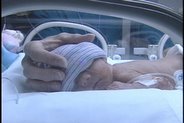An excellent common sense approach to the hype surrounding hand washing hygiene. This article is excerpted from the Grand Island Independent, a newspaper published in Nebraska:
"Widespread use of antibacterial hand gels has helped make it easier for healthcare workers to comply with hand hygiene policies, which is especially important during cold and flu season.
The gels, which have been proven as effective at killing germs as soap and water, are also less drying to the skin an important quality for those who work in the medical field and may cleanse their hands up to 50 times per day.
Recent studies and local experience have proven, however, that increasing compliance to hand-washing policies is not always enough to reduce the rates of hospital-acquired infections.
A study published by the University of Nebraska Medical Center this month showed that while use of antibacterial hand gels in two UNMC adult intensive care units helped the units increase their hand-washing rate from 38 percent to 70 percent, there was no corresponding reduction in hospital-acquired infections.
But a similar experiment at St. Francis Medical Center has had different results.
At St. Francis, the use of hand sanitizer and the creation of a hand hygiene improvement committee has nearly doubled the rate of hand-washing policy compliance for the entire hospital, said Laura Mader, St. Francis infection control coordinator.
The hospital's current 76 percent compliance rate is above the national average. It has also led to a decrease in St. Francis' incidence of hospital-acquired infections, Mader said.
While UNMC and St. Francis had different results in similar experiments, officials from both facilities agree that hand washing, while highly important, is only one component of infection control.
"There are many factors that influence the development of hospital-acquired infection," said Dr. Mark Rupp, professor of infectious diseases at UNMC. "It would be naive to think that a single, simple intervention would fix this problem."
The lack of a correlation between increased hand hygiene and lower incidence of infections could be attributed to many factors, including UNMC's already low infection rate in the ICU."
Infection Control professionals fight disease transmission on many fronts. While hand washing has drawn much attention, it is merely one weapon in the arsenal. We believe that a comprehensive approach to infection control should include air disinfection, especially in critical care units.

